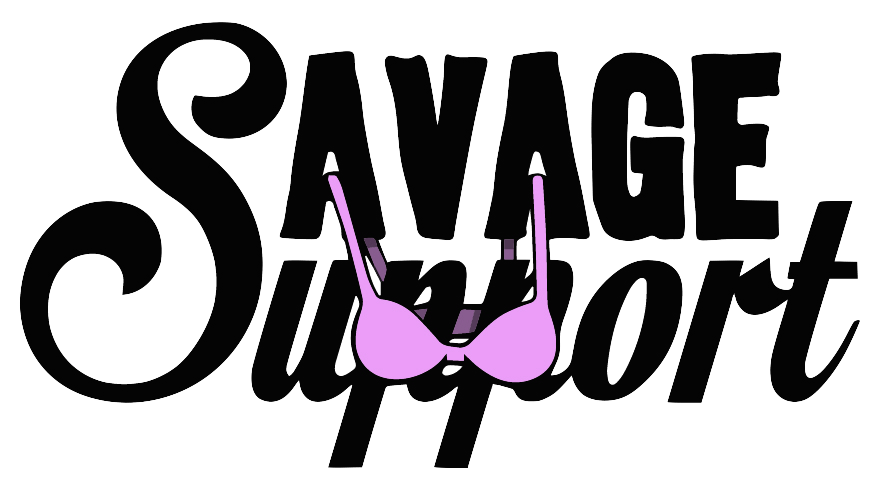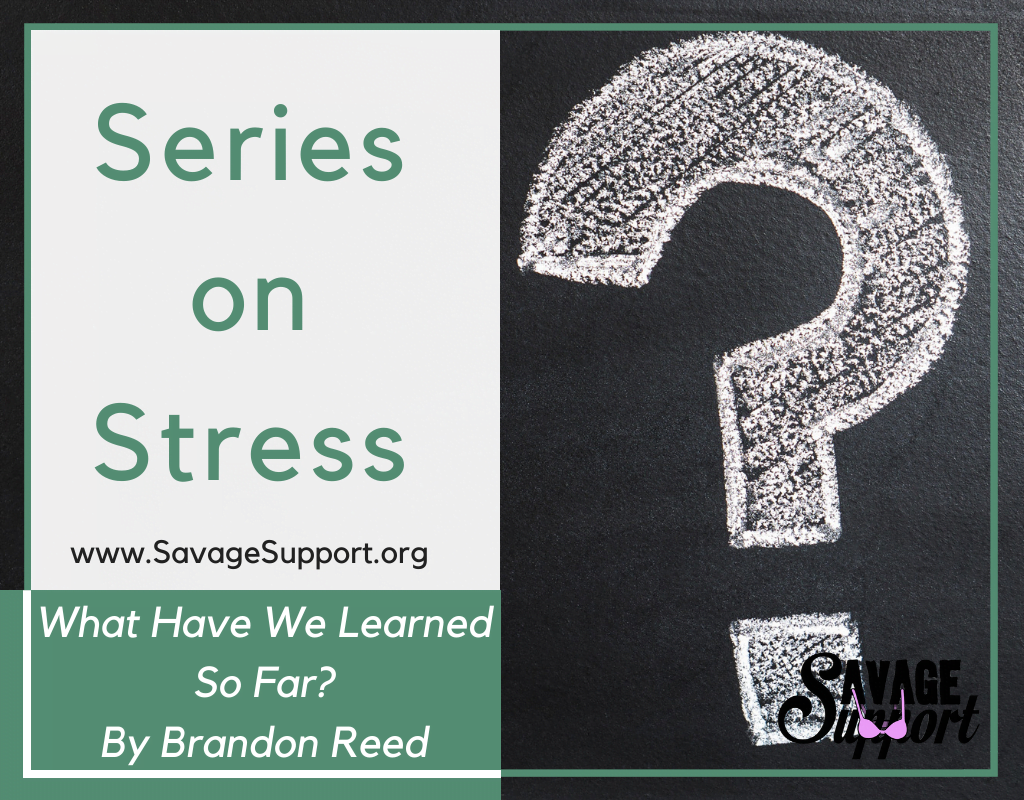Over the last year we have learned a lot about stress. We’ve talked about the science of stress, how it affects our bodies and various methods of reducing stress.
In the spirit of looking back on the previous year and toward the new one, let’s reflect on on what we’ve covered.
What Have We Learned So Far?
Intro To Stress
In our first SOS, we discussed the science of stress. We covered stress hormones like adrenaline and cortisol and the effect they have on the body. We learned that adrenaline is the hormone associated with the fight or flight response (think the feeling you get when you are driving fast and you see flashing lights behind you) and cortisol is a stress hormone that remains circulating in your bloodstream for longer. Cortisol is the hormone associated with the damaging effects of stress because it can impact heart function, blood pressure, mood and the ability to fight off infections.
Exercise
We interviewed Dr. Leslie Waltke of the Waltke Center Rehabilitation Academy on the importance of exercise on reducing stress levels. She explained how exercise is associated with a decrease in fatigue (one of the main complaints among cancer patients) and the importance of doing as much as you can, even if it is only five minutes here and there throughout the day. She also told us that exercise helps with stress in some people by giving them an outlet to release their frustration while in others, it is a way to turn off their brain. Finally, we showed which exercises are easy to do at home and the advice that Dr. Waltke gives to each of her patients.
Mindfulness and Aromatherapy
We interviewed Lisa Zochert of Aroma Centered on how she uses aromatherapy and mindfulness in her practice. We learned that aromatherapy affects both mind and body in different ways and that each person responds differently. Responses to aromatherapy are broad and unique to the individual. Lisa gave the example that lavender has properties known to physically relax a person unless there is a negative mental association with lavender. Mental stress may counteract the physical response the body has to the aroma itself. Aromatherapy has been shown to impact levels of blood pressure, heart rate, and mental activity. She warns us that some herbs and aromas can alter the way medications are absorbed by the body and recommends speaking with your doctor or trained aromatherapist before using aromatherapy.
Lisa discussed how mindfulness can be used to reduce stress. She noted that it can be difficult to figure out where to start, but even a few minutes a day following along to a guided meditation can be a great start. Additionally, she recognized yoga as a way to learn mindfulness, as the focus is on purposeful breathing.
Do What You Love
Doing what you love is obviously a great way to reduce stress. We focused on how to make the time to do what you love and that each person finds stress relief in different ways. We looked at the importance of positive self-talk and self-kindness and the impact that it has on us psychologically. We suggested ways to keep life fresh and encouraged our readers to try new things. You never know when you might find something completely different that you enjoy doing!
Reiki
Caroline Reese with Satori324 interviewed with us and explained the benefits of reiki as a tool to reduce stress. As with all other SOS articles, we reiterate that reiki sessions can be used in tandem with orthodox treatments but should not replace them. We covered what a reiki session is like, the effects it has on stress and the body, and what you may expect after a reiki session.
Key Take-Aways
After 5 different articles looking at stress and ways to reduce it, what did we learn?
Everyone is different
What works for one person may not work for another. One person may find exercise the perfect way to stress release while listening to music or visualizing their stress leaving their body, as another person may find gardening a great way to reduce stress because it relates as a meditation for them. There are numerous ways to find stress reduction, each is valid to those who experience their benefits. We wish for every one of our supporters to make the time to reduce stress in their life. Remember to try new ways of reducing stress, find what maximizes your enjoyment in life!
Stress reduction itself is not a treatment for illness
We do not suggest that the interventions we cover in this series are replacements for orthodox medical treatment of cancer. Orthodox cancer treatments have proven to be the most effective forms of cancer treatment.
Doing something is better than doing nothing
We know that it can be difficult to get up and do something when you don’t have the energy. Time and time again we have seen that doing something is better than doing nothing. Doing five minutes of exercise or five minutes of mindfulness or even five minutes in front of the mirror telling yourself you love yourself has an impact on your stress and how you feel. Starting small also means that you can slowly work up to practicing more regularly, which is encouraging to live life to the fullest.
What Is Next?
Next month marks our 5th year supporting those fighting breast cancer through practical and helpful, day-to-day ways. We have some exciting things and great topics lined up for 2020! We don’t want to spoil the surprise for you, but a few of the topics we will cover include yoga, sleep and massage.
Let us know in the comments below which SOS from 2019 you liked the most! What would you like to see in our next SOS? As always, please contact us with referrals, professional resources or for a beneficiary or if you would like more information about Savage Support.


0 Comments